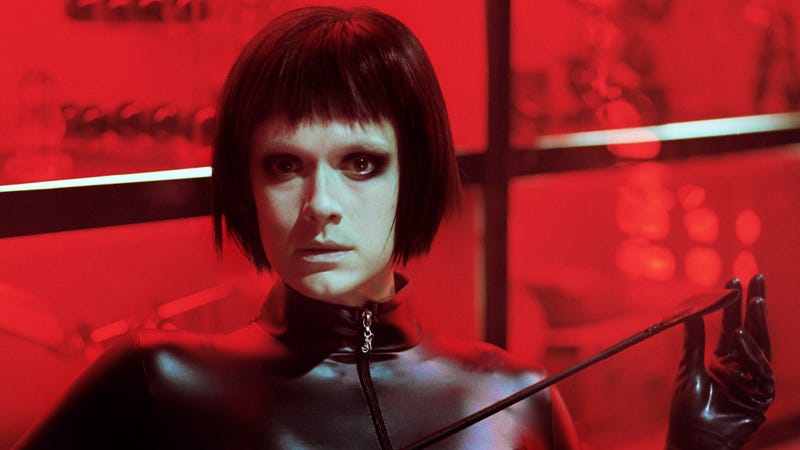Blurring the lines of pain and pleasure, punishment and peace

Finnish director J-P Valkeapää’s Dogs Don’t Wear Pants feels like one of the best representations of what Fantastic Fest is all about. It is hard hitting, darkly comic, and contains scenes guaranteed to make an audience squirm in their seats; all this, but with emotional heft.
The film opens with a traumatic event as cardiac surgeon Juha (Pekka Strang) fails to save his wife from drowning while on a family vacation with their young daughter. Years later, daughter Elli (Ilona Huhta) is now a precocious teenager, and Juha is still consumed by mourning, putting up an emotional wall to those around him and displaying some deeply melancholic sexual proclivities involving his wife’s clothes and perfume. Elli’s entry to adolescence has started to increase her rebellious nature, and deploying a little reverse psychology Juha takes her to get her tongue pierced. Leaving her to complete the procedure, he enters into an adjoining chamber, stumbling across a low-lit room full of bondage gear. Reaching out to touch these wondrous items, he is knocked to his feet by a leather clad dominatrix. Gasping for air and slipping into unconsciousness, he sees a vision of his dead wife. Yearning for more, he sets up an appointment with his “assailant,” a woman named Mona (Krista Kosonen). Referring to him as her “dog,” each encounter offers him a connection to his lost love, but his craving for greater intensity increases the risks.
Mona sees at first just another kinky client who is later revealed to be something more complex, prompting her own inner conflict, blurring the boundaries between dominatrix and client. For Juha, the pursuit of his wife’s memory blurs with his involvement with Mona, turning into a growing obsession as she becomes the key to satiating his desires and giving him the connection to his dead wife he so craves.

The world of sadism and masochism was given prominence in pop culture with the 50 Shades of Gray series, which barely scratched the surface of this sexual sub-culture and barely touches on the power dynamics involved, nor the complexity of the human psyche for those who participate in it. Valkeapää and co-writer Juhana Lumme approach it with far more consideration, a lack of judgment, as well as injecting a black Nordic sense of humor. It’s a psychodrama that isn’t titillating for the sake of it, while also being sex positive. There is reason and compassion behind the choices and actions depicted, building a character study of a man dealing with immense loss, a distant daughter slipping further away as his obsession consumes him, and the power dynamic with this woman who begins to realize his flirtation with death is setting him on a potentially lethal course. An absorbing sense of unease leaves the audience unclear as to how far Pekka, or the film, will go.
Pekka Strang commits fully to his role, playing it mundane but slightly off kilter, restrained and withdrawn, dripping just enough pain or elation as needed. For Mona, what could be a distant, detached, and sexualized figure is sketched as something far more affecting. Scripted as an intriguing contradiction (by day working as a physical therapist to help people, by night inflicting pain on people), much complexity is given by Kosonen’s subtle work, with body language and facial expressions conveying a world of conflict, anger, surprise, and sympathy.

It’s a tale that could easily turn exploitative, or tilt too far into darkness, but instead holds an admirably delicate ground where it manages to be provocative, but given ballast by an emotional and narrative weight. Immersive, unflinching camera work conveyed with a dual aesthetic from cinematographer Pietari Peltola. The lucid, grey banality of these people’s normal lives contrast with the sleek, lurid sequences of latex bathed in neon. Visually it complements how assuredly Dogs Don’t Wear Pants blurs the lines between pain and pleasure, punishment and peace — making for an audacious but accessible dive into grief and the BDSM scene that lingers long in the mind thanks to a blissfully cathartic denouement.



